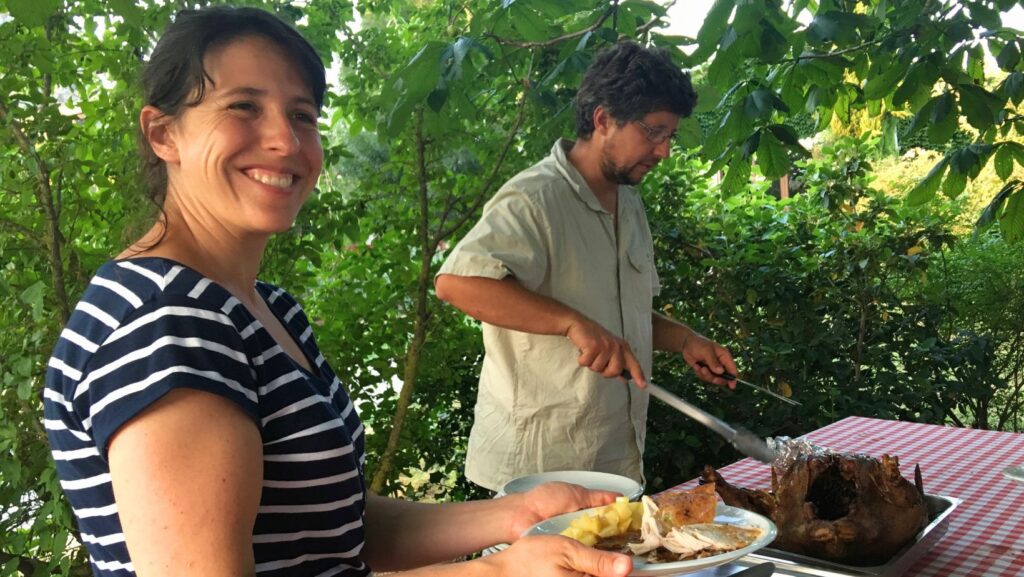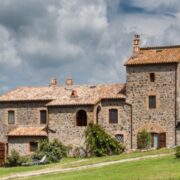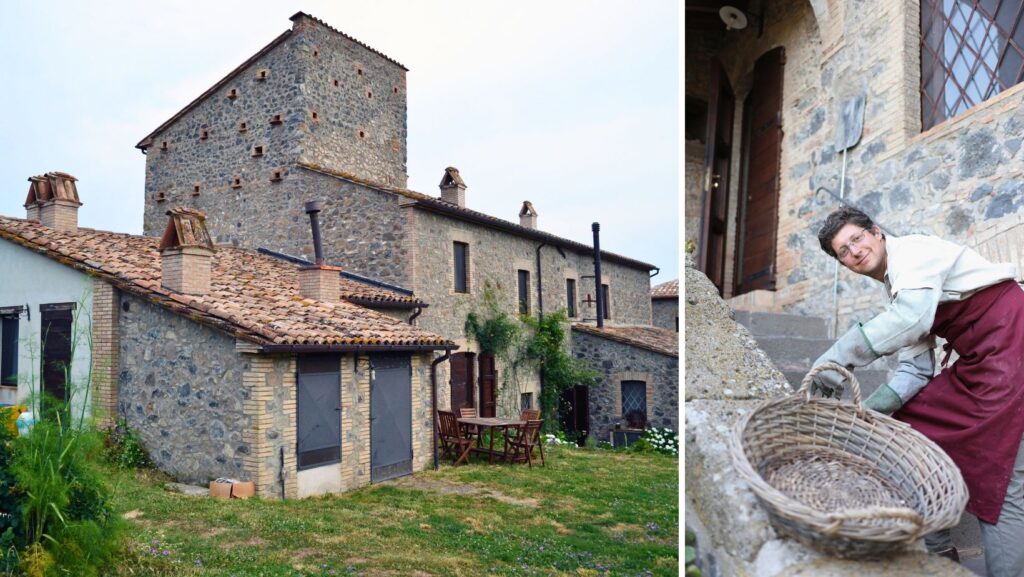
When Chiara Dragoni and Marco Carbonara first set foot on the land that would become their farm Pulicaro 20 years ago, they weren’t just looking for a home where they could raise a family. They were seeking a particular way of life. Blending ancient Etruscan agricultural wisdom with modern regenerative farming practices, they work toward finding a balance between the needs of human civilization and nature.
Twenty years ago, Chiara was studying archaeology in northern Italy, specializing in the conservation of historical heritage. During her tenure as a student, she became deeply curious about how ancient civilizations managed their environment and lived harmoniously with nature. “How they lived harmoniously with nature while utilizing its resources. This balance fascinated me, and it’s deeply tied to my own roots as a descendant of artisans and farmers,” She said.
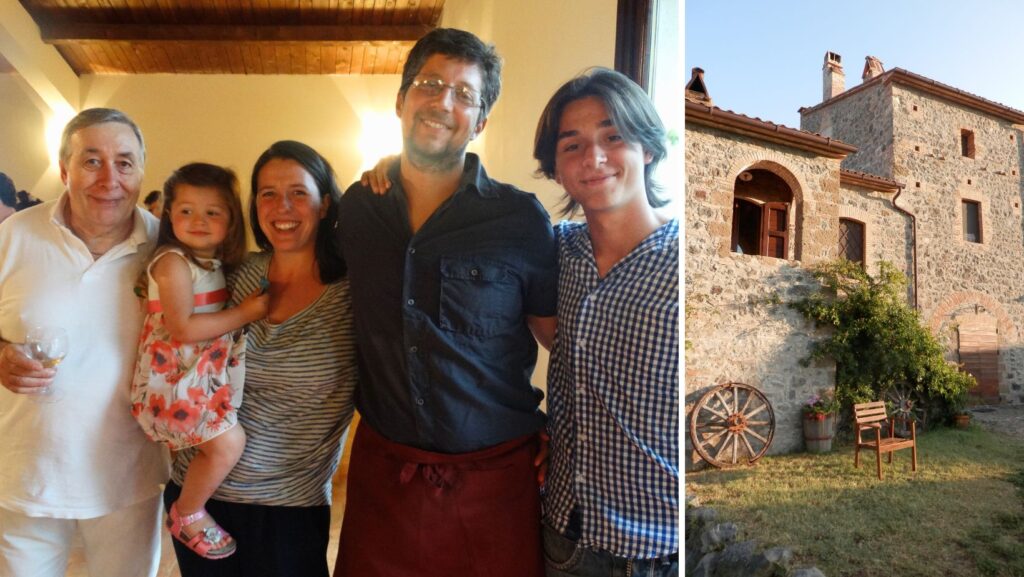
Chiara Dragoni, Marco Carbonara, and family in 2014
The Etruscans were a sophisticated civilization, distinct from the Romans who later conquered them. Orvieto, a picturesque hilltop city near Pulicaro, was once the epicenter of Etruscan culture, known then as Velzna. “Women had power in Etruscan society,” Chiara explained. “They could lead symposiums and rule as queens, unlike in Greek and Roman civilizations, where women were excluded.”
“This area is less inhabited than 2,000 years ago,” says Marco Carbonara, Chiara’s husband and co-founder of Pulicaro. “This was a very rich district, a center for trade from here to the coast. The Etruscans understood their ecosystem and lived in balance with it.” Marco, whose background in ecology shaped their farming philosophy, is convinced the Etruscans were pioneers in agroecology, cultivating, hunting, and foraging in a way that sustained the environment.
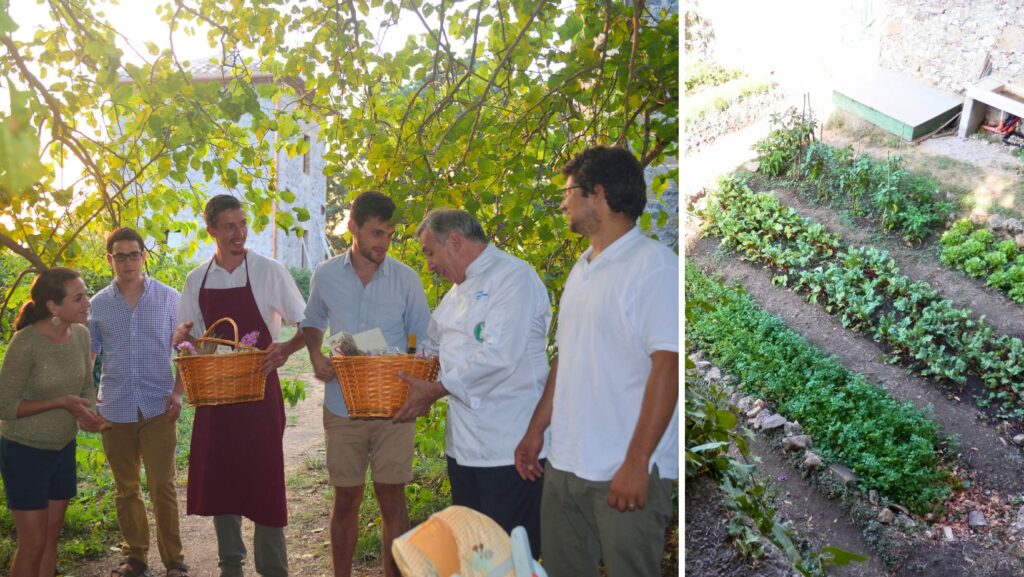
It was this appreciation for heritage and ecology that inspired Chiara and Marco to leave the city two decades ago and settle in the countryside. The Dragoni family acquired Pulicaro, a crumbling farmhouse on 7 acres of land, and began to restore it piece by piece. Today, the estate sprawls across 150 acres, with another 100 acres rented nearby. They cultivate heirloom varieties of fruits and vegetables, raise heritage breeds of livestock, and practice regenerative agriculture, a philosophy rooted in ancient techniques.
For students on Putney’s Career Italy: Farm to Table program, Pulicaro offers an immersive experience into a way of life that seamlessly blends past and present. Here, they don’t just learn about sustainable farming—they live it. They taste the heirloom crops, tend to the animals, and walk through landscapes that have sustained civilizations for millennia.
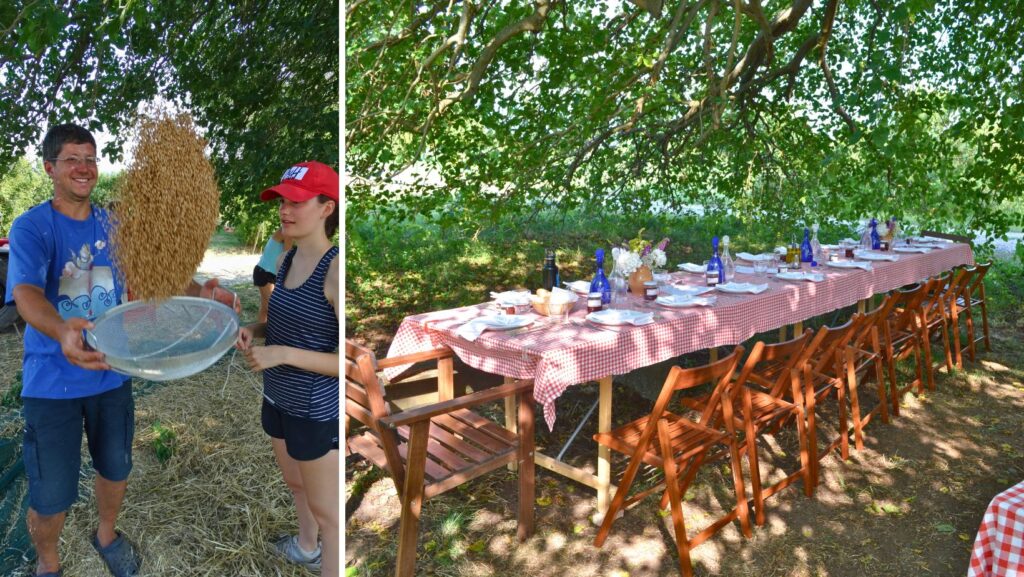
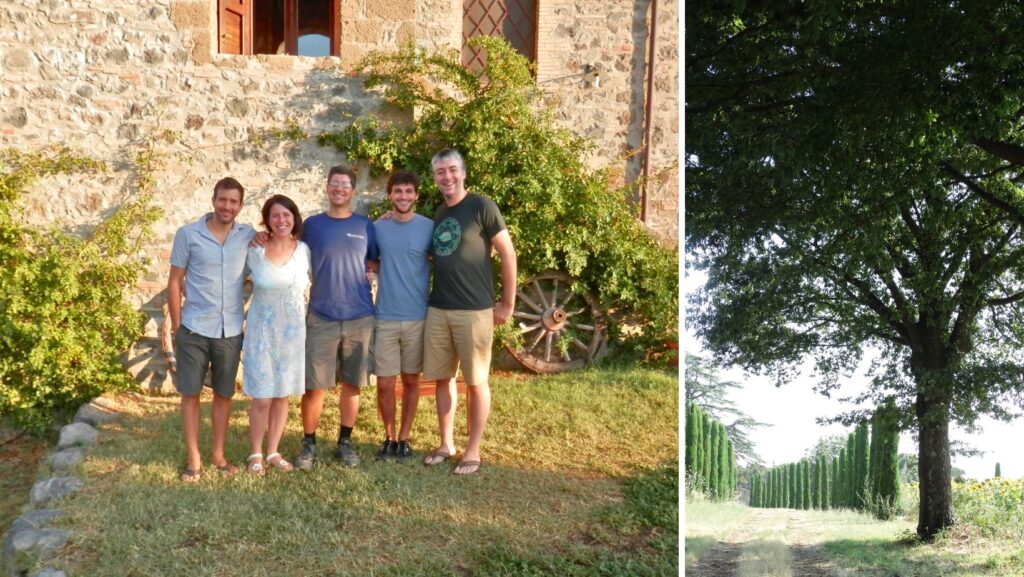
Previous Program Director, Patrick (far right), on his programming trip to Pulicaro in 2012
Pulicaro is one of only two farms in Italy certified by the Slow Food movement and a founding member of EARA Farm, a network of ecologically conscious growers. “We’re in the heart of Etruscan land,” Chiara explained. “Everywhere you walk, you’re stepping on history. A neighbor’s flowerpot is an artifact from 900 BC, and the names of places tell stories, like Campo della Battaglia, the Field of Battle, where they once uncovered knights’ skeletons from the Middle Ages.”
The farm hosts a diverse range of animals, including chickens, turkeys, rabbits, pigs, goats, sheep, cows, donkeys, and even ancient breeds of dogs described in texts over two millennia old. Their crops include heritage olives grafted onto wild rootstock, white eggplants, 15 varieties of tomatoes, and over 400 fruit trees, all carefully selected to honor the land’s history.
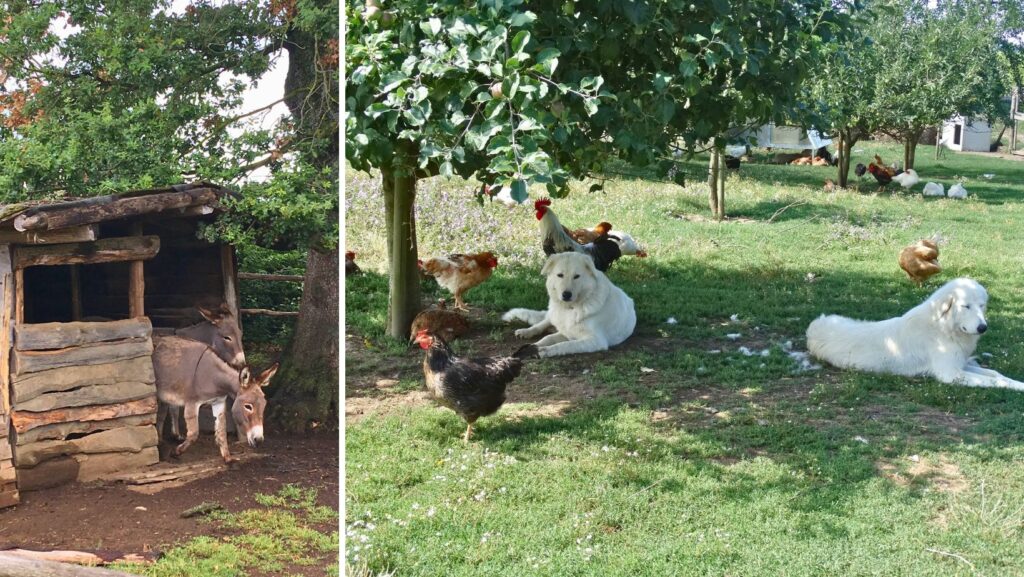
Today, Pulicaro is a sanctuary, an homage to the past and a promise to the future. Chiara’s eyes shine as she speaks of the land: “Knowing their ecosystem was the key for the Etruscans, and it’s the key for us. It’s about farming by the rules of ecology, living with the land, not just on it.” Pulicaro is more than a farm, it’s a living bridge between the past and the future, where ancient traditions inform modern sustainability. For students in the Career Italy: Farm to Table program, it offers a hands-on lesson in the art of working with, rather than against, nature, just as the Etruscans once did.
